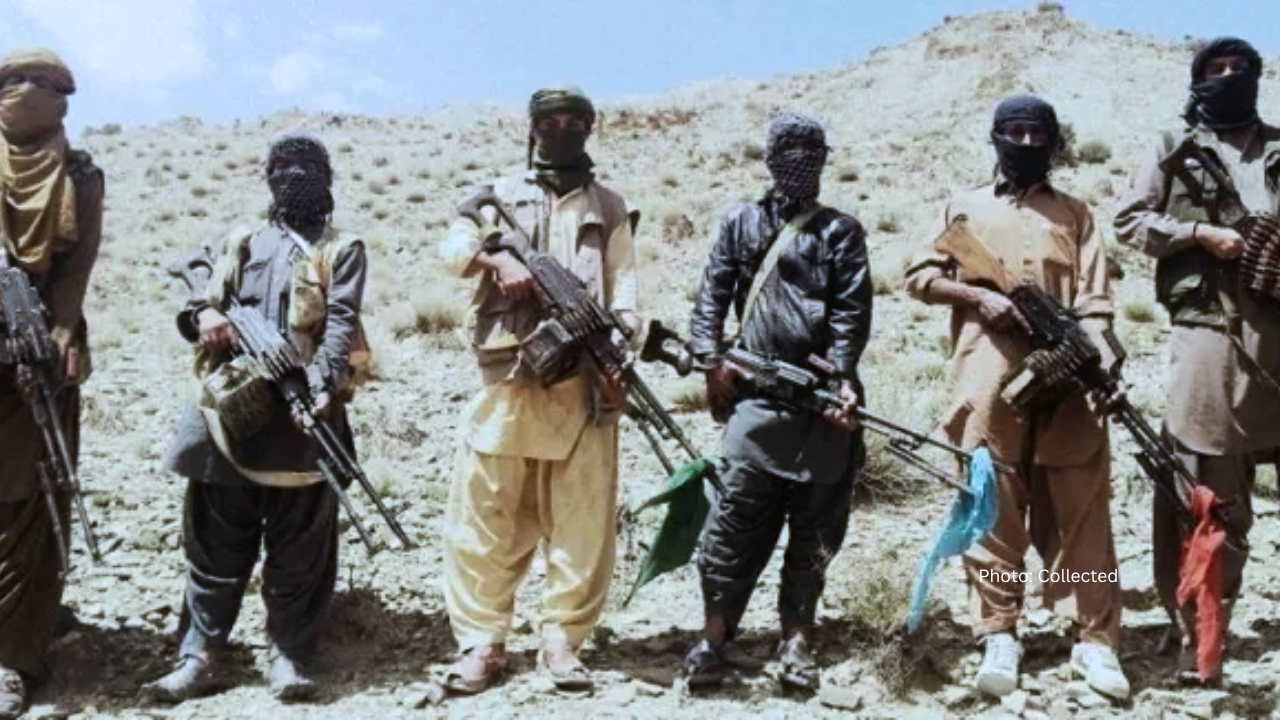Balochistan Insurgency: A Historical cry for independence of Baloch people
Debii Karmakar | 26 August 2024
Separatist militants launched several coordinated attacks in Pakistan's province of Balochistan, killing at least 39 people.
A Well-coordinated wave of violent attacks swept across the troubled province -Balochistan that shook Pakistan. Gunmen have killed at least 22 people in south-west Pakistan after forcing them out of their vehicles and checking their identity.The attack happened overnight on a highway in Balochistan province, where security forces are battling sectarian, ethnic, and separatist violence.The armed men checked identity documents, reportedly singling out those from Punjab to be shot, before setting the vehicles alight.The Baloch Liberation Army (BLA), a militant group, has said it was behind the attacks in Musa Khel district. The nature of militant insurgency has changed over time. This time, they have attacked civilians.
The BLA's recent attacks show increased ambition and brutality compared to their usual small-scale assaults. Unusual tactics include warning civilians before attacks and coordinated highway assaults, reminiscent of a deadly April incident. In May, they targeted non-Baloch residents. Analysts described the BLA's improved mobilization and operational capabilities across different areas. With an estimated 3,000 fighters, the group demonstrated growing sophistication and a shift towards more aggressive, large-scale operations, which marked a significant escalation in their separatist campaign.
The Balochistan Liberation Army (BLA) emerged from ethnic and political tensions between Pakistan's Baloch minority (3.8% of the population) and the government. Designated as a terrorist group by Pakistan in 2004 and the US in 2019, the BLA's activities have escalated regional tensions, involving Iran where many BLA members reside. Recent cross-border air raids between Pakistan and Iran highlight the conflict's international dimension. The BLA's latest attacks coincided with the anniversary of Baloch leader Akbar Bugti's death in 2006, killed by Pakistani forces.
Balochistan, a resource-rich region with a strategic geopolitical location has faced exploitation under Pakistani rule. The end of the Second World War marked the decline of British Colonialism in the Indian subcontinent. As the British Prepared to leave, they divided the region into India and Pakistan, the latter created in the name of Islam. Pakistan’s creation was part of the British Strategy to influence the region—Baluchistan, previously a semi-autonomous entity under British rule, declared independence.However, On March 27, 1948, Pakistan forcibly annexed Balochistan through Military Intervention. This action sparked resistance among the Baloch people led by Prince Abdul Karim. However, the Pakistani authorities quashed the rebellion using oppressive tactics to force the Baloch People into submission.
Since then, Baloch people have been fighting for self-determination and non-discriminatory administrative policy from the Pakistan Government. The Pakistani government has used religion and education to suppress the Baloch people. Baloch people have been kept educationally backward and there have been establishments like religious institutions such as Madrasa at every corner or block. People who lack modern education have more tribal loyalty. This kind of framing immensely helps the Pakistan government to exclude nationalist power of Baluchistan to come to political power.
Several contemporary factors, challenging conflict resolution, fuel the current Baloch insurgency. The construction of the Chinese-funded Gwadar mega-port is a major driver of conflict. While strategically important for Pakistan, the project has largely excluded local Balochs from its development and benefits. The federal government runs the project, employing Chinese workers and engineers instead of locals and postedarmy personnel for security.Expanded natural gas exploration is another source of tension. Balochistan is a transit site for the proposed Iran-Pakistan-India (IPI) pipeline, but Baloch militants frequently target gas infrastructure to protest federal exploitation of their resources.
The economic marginalization of Baloch’s in these projects has increased resentment and resistance, leading to a more hardline government approach. This creates a cycle of animosity perpetuating the conflict. Other factors contributing to the insurgency include historical grievances of political and economic subjugation, the war in Afghanistan, and the military's harsh response to nationalist demands. Despite the importance of these resources and projects, Islamabad remains unwilling to negotiate with the Baloch’s over the very issues that fuel their resistance, further complicating the prospects for conflict resolution.
Prime Minister Sharif assured Pakistan's commitment to eradicating terrorism, honoring the sacrifices made by citizens and armed forces. He pledged full resources to the military for counterterrorism efforts, stressing the urgency and resolve needed to eliminate this threat. Sharif expressed openness to dialogue with those loyal to Pakistan and its constitution but firmly rejected negotiations with enemies and terrorists.
Debii Karmakar is a Research Assistant at CGS
Disclaimer: Views in this article are author’s own and do not necessarily reflect CGS policy.
